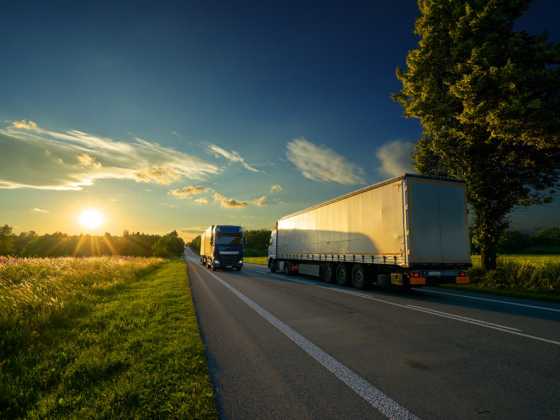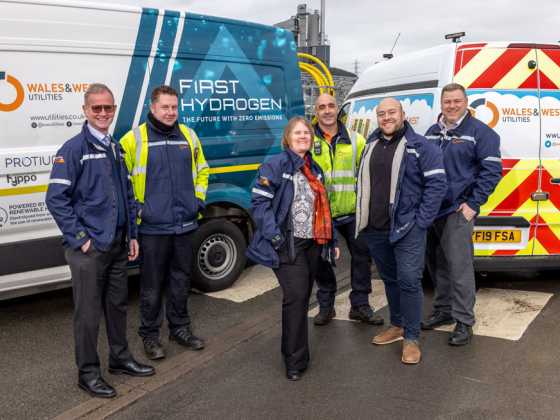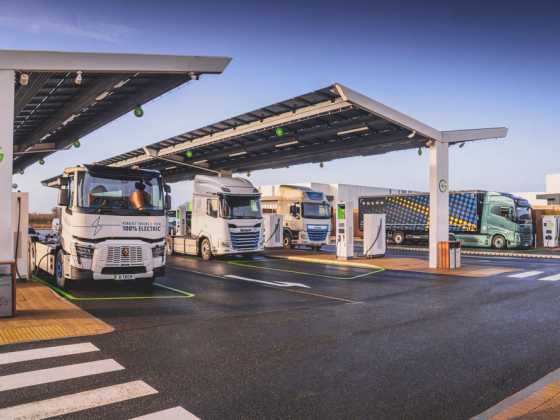How green is your transport operation?
The Freight Transport Association gives an update on the Logistics Carbon Reduction Scheme, an industry-led voluntary scheme to record, report and reduce carbon dioxide emissions from freight transport activity in the UK
 With carbon dioxide emissions from logistics accounting for almost a third of total domestic transport emissions in the UK and with tough targets to meet under the Climate Change Act 2008 (an 80 per cent reduction in greenhouse gas emissions by 2050, against a 1990 baseline), it is up to the industry itself to take the reins of its own carbon destiny.
With carbon dioxide emissions from logistics accounting for almost a third of total domestic transport emissions in the UK and with tough targets to meet under the Climate Change Act 2008 (an 80 per cent reduction in greenhouse gas emissions by 2050, against a 1990 baseline), it is up to the industry itself to take the reins of its own carbon destiny.
Last year, the Freight Transport Association (FTA) revealed in these pages that it was launching a scheme to give companies reliant on an efficient supply-chain the means to not only report and ultimately reduce their own carbon dioxide emissions but also help build an accurate picture of the logistics sector’s total carbon footprint.
The Logistics Carbon Reduction Scheme (LCRS) will enable industry to arm government with a robust set of data on which to base its future environmental policies, at least where the logistics sector is concerned.
How it works
Scheme members commit to regularly reporting their fuel use figures, from which carbon dioxide emissions for the scheme are derived, together with a set of four activity and business-based normalisers. From these datasets, absolute levels of emissions and the relative improvement in emissions over time can be monitored.
Historic trends in emissions have been tracked, where data is available, back as far as 2005. This has given industry confidence that the datasets being monitored are providing a credible picture at an aggregated level, and that the information is based on data which is already compiled within companies as part of operational key performance indicators and management reporting.
Since LCRS was launched last year, it has accrued and analysed fuel usage data from 45 businesses – including the likes of Arla, Warburtons, and Roberts Bakery, third party transport operators, retailers, councils, utility companies and builders’ merchants, who between them operate in excess of 40,000 commercial vehicles.
Initial results
It was with some excitement, then, that the LCRS's first annual report was published last month to coincide with Climate Week, revealing some positive news. Firstly, its voluntary members committed to an eight per cent cut in carbon dioxide emissions by 2015 (compared to 2010 levels). This target is not an arbitrary one and reflects planned changes at an operator level in vehicle fuel efficiency, improvements in vehicle productivity, greater use of rail freight and uptake of alternatively fuelled commercial vehicles. Secondly, the overall carbon usage of its participants steadily improved between 2005 and 2009. And this is not because there is less trucks on the road as a result of tough trading conditions; these figures are based on carbon emissions related to total vehicle kilometres. More than just measuring and benchmarking success, the LCRS looks to share best practice to help all transport operators achieve greater environmental performance and, as a result, a better image and cheaper operating costs too. All of which are becoming increasingly important as profit margins in the sector become squeezed by rising fuel costs and greater market competition.
Endorsement from the top
This cost pressure is not lost on the government it would seem as on 7 April the FTA’s chief executive, Theo de Pencier, received a letter of ministerial endorsement for the Logistics Carbon Reduction Scheme. Mike Penning, transport minister at the Department for Transport, said: “I welcome the Freight Transport Association’s Logistics Carbon Reduction Scheme. The fact that it already covers nearly 40,000 vehicles – and will expand to cover more – will help to provide a detailed picture of the quantity and trend of carbon emissions by the freight industry and show that it is capable of working together, voluntarily, to tackle its harmful emissions. The scheme is the first of its kind for the freight sector, and should deliver real progress toward the UK’s carbon reduction targets.”
No doubt about it, climate change is one of the greatest transport policy challenges facing the government. The Logistics Carbon Reduction Scheme forms an important part of industry’s response to that challenge by capturing the progress that is being made by individual businesses in reducing the carbon emissions from their freight transport activities and, for the first time, committing the scheme membership as a whole to a future carbon reduction trajectory. The minister’s endorsement of the scheme transforms it from a pioneering initiative to a mainstream policy instrument.
Best practice
Of course, the logistics sector is already blessed with some great examples of environmentally-friendly best practice. Keystone Distribution, for example, recently signed up to the Scheme. “At Keystone Distribution UK we are making significant progress in reducing our carbon emissions by collecting used cooking oil and converting it to biodiesel,” says Gary Todd, logistics director at Keystone Distribution UK. “This powers the majority of our fleet and saves 9,429 tonnes of CO2 emissions from being emitted into the atmosphere a year. As a leading logistics firm we feel it is imperative to join the LCRS to further demonstrate our commitment to meeting the challenges of climate change.”
It is with the help of companies like Keystone that a carbon emission reduction target of eight per cent in the time parameters agreed is not only eminently fair but helped by the sharing of carbon best practice from leading companies in the sector. To that end FTA, FTA recently launched the Logistics Carbon Reduction Scheme (LCRS) Knowledge Bank to profile the efforts that industry is making to reduce its carbon emissions and to allow operators to share best practice.
The Knowledge Bank sets out the climate change challenge for freight, offers tips for reducing emissions and currently features carbon reduction case studies from Howard Tenens, TDG UK, Ceva Logistics and Boots UK.
Carbon dioxide emissions from lorries and vans are responsible for 90 per cent of all domestic freight emissions, so the logistics sector needs to focus here to effect meaningful change. The scale of the task in hand is considerable given there are some 400,000 trucks and three million vans out there helping to keep UK plc running, which is why industry support for this scheme is so important.
Fuel savings
With fuel by far the biggest single input cost for the logistics sector it is little wonder that the industry has already made great strides to mitigate its environmental impact, without the need for government regulation. As such there are already a great many companies that espouse excellent environmental best practice through investing in greener technology and eco-driver training, or by using other modes of freight transport or employing intelligent, low-cost solutions like night-time deliveries. With tough national and international climate change targets to meet, industry must shape its own carbon destiny. The good news is that it looks more than capable.
FACTS AT A GLANCE
• The Logistics Carbon Reduction Scheme is an industry-led voluntary scheme to record, report and reduce carbon dioxide emissions from freight transport activity in the UK
• Individual companies submit fuel and activity data to FTA which is converted into a carbon dioxide footprint. Whilst the scheme is managed by FTA, it is open for all companies moving freight in the UK to join.
• The scheme’s first annual report was published on 24 March 2011. Copies of the report can be downloaded at www.fta.co.uk/lcrsreport
• The Department for Transport intends to conduct a progress review in summer 2012 of the progress the logistics industry is making in reducing carbon dioxide emissions. The Logistics Carbon Reduction Scheme will form an important part of the evidence base for this review.
FOR MORE INFORMATION






